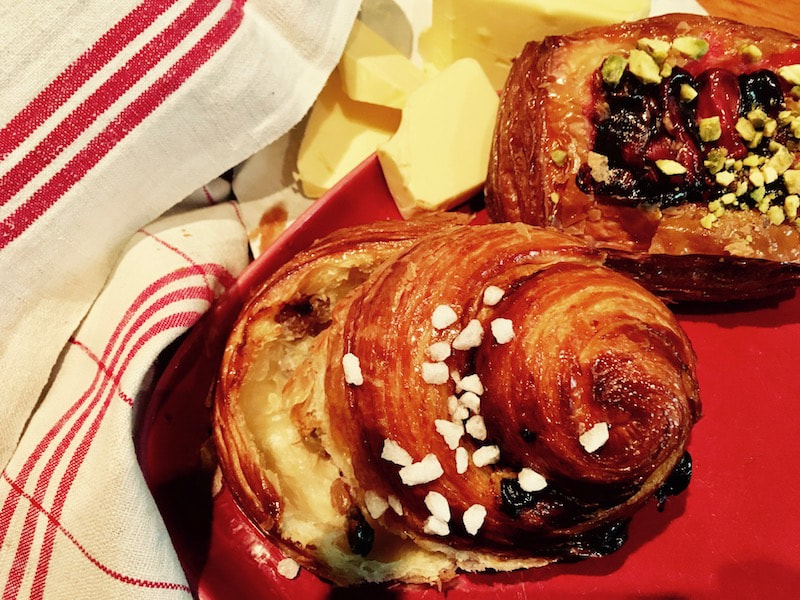 So we’re suffering a butter crisis. Who’d have thought? I’m not an economist, (I still think Manolo Blahnik represents good value, HaHa) but we sit and watch major supermarket chains screw down the profits of milk farmers in order to supply cut-price milk, forcing many farmers to leave the land, then we have a milk and butter crisis. On top of that, ill-founded nutritional research is now abandoned in favour of “the real thing” so no more low-fat milk and no more margarine. Real milk and butter are “good for us” again and we can’t source enough for our croissants and hollandaise. (Remember friends piously telling you “but I only buy olive oil margarine”? Hydrogenation???) So does the baking industry turn to France and Europe for their butter. No, because they’re also having a crisis. “Butter makes it better” - the advertising catch cry of early 80s has never been more poignant.
2 Comments
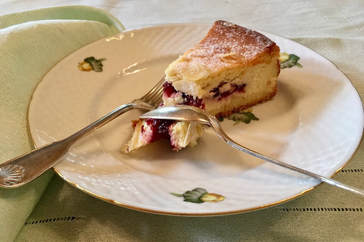 The plate is by Bing & Grondhal, started in 1853 (Denmark) but merged with Royal Copenhagen in 1987 (financial crisis, cheap imports, overseas slave labour over high wage costs, general apathy to dining & the decorative arts, whatever). This design, Erantis, is its second most popular after Seagull, which is said to be found in one in ten Danish homes. (Too blue!) This plate dates from c.1955 and the design continued to the late ‘70s. Cutlery - Christofle Vendome, fork and spoon given to me at birth, by tradition, by my French relatives. I wasn’t born with a silver spoon in my mouth. It was silver plate. From nineteen, my parents gave me a fork, a spoon or a knife in the same design every birthday or Christmas so I have a full service. (A great present idea – think about it.) Tablecloth – my mother's – eau de nil linen –just post WW11 so the napkins are only 48cm x 48cm square (19" x 19") - not as generous as older ones. The most important accreditation goes to the Cherry Cheesecake I bought from Muratti Cakes & Gâteaux in Prospect. My niece, Pascale Kerry Kleinburg (now there's a great cultural and gastronomic mix!) served this for a light family / friends lunch - a great mix, fresh, uplifting, tasty, relaxed.
Billy Connelly once told a gag about how he loves the sound of certain words even though they're difficult to use in everyday speech (e.g hypotenuse and barrathea). I’ve painted a wall in the house “eau de nil” just because I like saying it. I drink “Muscat de Baume de Venise” with blue cheese for the same reason. A “salmagundi” is a 17th century word for an arranged mixture of anything cold - meats, fish, fresh,and pickled vegetables. So Pascale, could this be a salmagundi? (A cold collation is sadly dated and has echoes of the Woolworths cafeteria and a malt vinegar shaker.) How about also adding… Jentacular, - meaning before breakfast. "I need my jentacular cup of tea before I can even speak!" "A jentacular walk around the neighbourhood sets me up for the day." Prandial – relating to a meal "A Negroni is still my preferred pre-prandial cocktail." "Post-prandial coffee doesn’t keep me awake, thank goodness!" 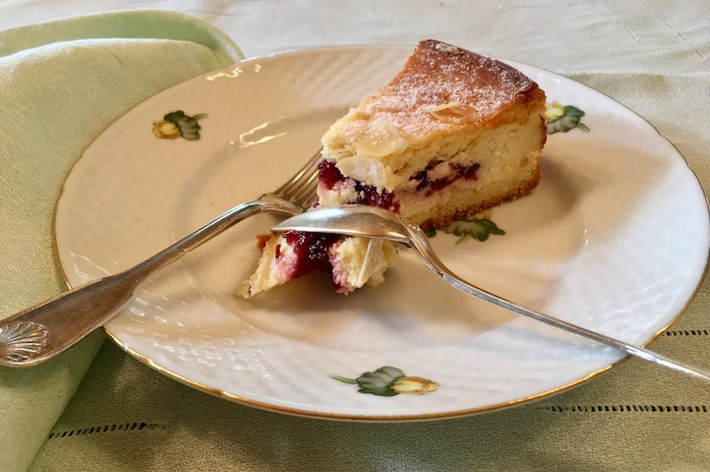 Give me the Cutlery! Dessert with only a spoon – OK you’re saving on dishwasher wages but do we have to push the food onto the spoon with our thumb? Give me the cutlery! Loud music – Yes, you’re a DJ manqué, you have impaired hearing due to the head-banger music you listened to as a youth, you have no conversation and imagine no-one else does either. Silence embarrasses you. Whose taste is your music satisfying? (Mine's terrible - I range from Schubert Leider to Country.) Background music is an insult to music. (Mind you, if you were to play Willy Nelson or Merle Haggard, at a suitable volume, I’d be putty in your hands. But I guess I’d also be eating ribs and something called Jerk.) Please, just turn it off! Espresso martinis – I know people need, honour and crave coffee but this mixture is disgusting. It has no kick. Stop it! Mindless questions – “How’s your day been so far?” I'm asked as I sit down. I don’t know you well enough to tell you. Set up a brainstorm with your crew to see how you could engage more meaningfully. Don’t ask me! Long tables without ends – You see it in Vogue magazine and real estate articles – a long table with chairs on either side, no-one at the end. This looks cool, tidy, slick, minimalist, sharp, elegant. But what about conviviality? Sometimes you talk to your left, sometimes you talk to your right so to whom does the sad unfortunate at the end talk to? Really out on a limb! A long table should have a sense of a circle, where the goodwill flows inwards, not out the end. A long table of eleven should have 4 on one side, 5 on another and one on each end. May not look like Vogue magazine but conversation will be easier. Fill the ends! Napkins – we’ve lost the battle against the embarrassing late 20th century ritual of having waiters drape napkins across our laps. (More on that later.) But the new dilemma is why can’t I leave the table and not have my napkin fiddled with? Debrett’s Modern Manners recommends placing your napkin on the seat of your chair if you need to leave the table. That’s good enough for me. Why does someone come and intrude on my table and my friends with a flash flourish to rearrange my used napkin? Is it a way of saying “You’re a naughty girl and I’m tidying up after you”. If you’re one of the party at the table, gently ask that the napkin be left on the seat. The time saved could be used to check our water, clear our plates, or get our bill ready. Save time for more important things. Leave my napkin alone! T-towels out the back pocket - I love the “hipster” look and the vibe of the places these waiters inhabit but can we lose the tea-towel hanging from the back pocket? I don’t know what you do behind the scenes, but wiping down tables with this much used tea-towel is not a good look. Unless they have a Dolce & Gabana or an Hermès logo in view, they’re not a cute accessory. Keep tea-towels out of sight. Positive reinforcement – when I order, don’t tell me “Good choice”. I don’t need positive reinforcement for what I eat, (especially when I hear it said at every table). 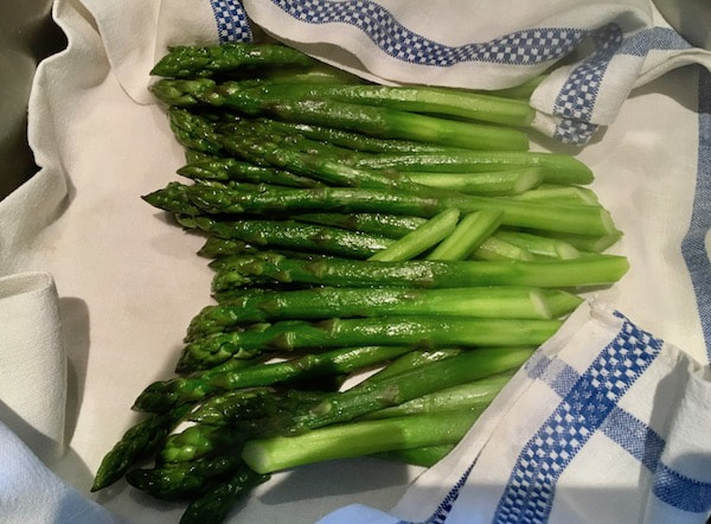 Asparagus should be thick. I don’t care what they call the skinny ones, (wild asparagus, baby asparagus), they’re just not lust-worthy. Asparagus is in true season right now and marvelous (but check the size). Draining a quantity of asparagus on a clean tea towel on a rack in the sink is gentle. Dumping in a colander might break them and damage the tips. Asparagus is eaten with the fingers. It’s just tradition. I’ve hunted and can’t find out why, but it’s nice to eat something this way, with gusto, and have it sanctioned by the rules of etiquette. Only use cutlery when… 1.The spears are very thin and over-cooked so they are floppy. 2.They are covered in dressing e.g. vinaigrette that would dribble onto your clothes 3.They are part of a “dish” e.g. asparagus mimosa or a vegetable accompaniment. 4.Otherwise go for it. If you serve asparagus at the beginning of the meal, it makes a good entrée (and also solves your green veg component of the meal). Give everyone a plate and put the cooked asparagus (room temperature or warm) piled on a platter in the centre of the table for guests to help themselves. Unless you have a draining serving platter, it's nice to place a vintage tea-towel under the asparagus. Each guest should have a small bowl of sauce (hollandaise, mayonnaise etc) to themselves. Gabriel Gaté showed me how peeling the bottom of the spear makes them translucant like jade. Add a tiny splash of olive oil to the simmering water to make them glisten (as with all green vegetables). (Forget the fancy asparagus cooker - just another gadget for the cupboard.) These asparagus plates make serving easy and special. Each person spoons sauce into the little well at the front. The asparagus is picked up with fingers, dipped in and relished. Plates - L to R Luneville - "Barbotine" c.1890 Emile Gallé - c.1880 St Brieuc - early 20thC In Europe, I’m thinking in particular of Germany and Holland, there is a season for white asparagus, an (affordable) luxury. If anyone knows where to find a grower here in Oz, let me know. 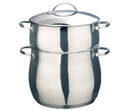 This is a shiny, new couscoussier. There were traditional copper or even earthenware ones. Then there were aluminium ones. Now they're stainless steel. 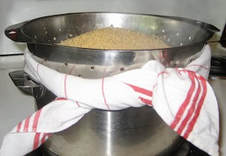 BUT remember that a colander over a saucepan of water works just as well. Asking around, it seems most households just use this method. One less gadget in the cupboard. Here's a small amount I'm steaming. (Yes folks, my 1959 Frigidaire De Luxe stove - vintage to the end). NOTE: Don't go all holier-than-thou health food, wholemeal couscous. It's not nice. Doesn't absorb the butter or the sauces well. 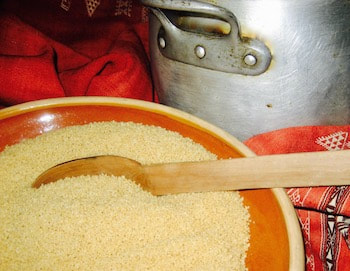 Couscous steamed in my battered old couscoussier. Couscous is the national dish of the Magreb, the area of North Africa comprising Morocco, Algeria and Tunisia. It’s a long simmered stew of assorted vegetables, cut into large chunks along with meat (generally lamb or in Tunisia, often fish), spiced perhaps with cinnamon or saffron. The stew is served over a “grain” confusingly also called couscous and doused with the cooking broth. Statistics show it’s the third most popular dish in France, just as Chicken Tikka Masala is Britain’s most popular dish (and in Australia, it could be pasta). This “grain” is made from semolina, the “hard” interior of durum wheat. Semolina is rolled with dampened hands to form tiny, tiny balls. Tell your conservative old uncle it’s really like mini pasta. Women used to gather together to make large batches, which they dried and stored for months until needed. Today, you can buy “instant”, packet couscous, machine made, pre-steamed, dried, ready to go. Most likely it will become a salad base, like tabouli or a quick alternative to rice. And that’s where the trouble starts. Couscous should be light and fluffy and smell like freshly baked bread. It is not damp, sticky, gluggy and washed out. The packet can be a quick fix but the instructions are vague and you won’t know what the final result should look and taste like. (See post “Cooking outside my culture” 5 October 2017) If you’re serious, cook it properly once and then do it the fast food way but at least you’ll know what to aim for. Cooking couscous (the “grain”)
Only a couscous nerd will do this every time but as I said before, just once will show you what real couscous is like. As children, we hoped there would be enough grain for the following day to eat it reheated with nuts (pistachios), cinnamon, dates and sultanas. Oh my! BOTH THE FOLLOWING STORIES CAME IN FROM THE WINE DILEMMA.
BOTH TRUE, BUT THE WRITER ASKED TO BE SHIELDED... I once gallantly stood aside and allowed a woman to enter a charity wine-tasting ahead of me. As a result, she drew the lucky door prize and won a top-table tasting of Chateau Lafite-Rothschild, Latour, Mouton, Margaux, Haut Brion and other illustrious wines, a once in a lifetime opportunity. She did offer me the ticket, but I politely declined. I encouraged her to enjoy her win. I asked her afterwards what the wines were like, and she said, "They were alright". So I went outside and let her tyres down. "B" THIS ONE SHOWS AMAZING GALANTRY... I recall one such incident. I took a rare bottle of old and irreplaceable vintage port to a dinner party at a winemaker's house. Call him "A". The bottle got lost in the bonhomie and wasn't opened. That wasn't intentional. "A" hadn't looked at the label and I wasn't going to make a fuss. It went to a good cause. Some time later, I showed a different vintage port to a wine writer. He declared it was pretty good, but nowhere near as sublime as one that "A" had recently poured him. "It was a ..." and he named the wine I had given to "A". Again I bit my tongue, gently, kept my own counsel. Expressing petulance also comes at a price. Was I upset, the adding of insult to injury? Not in the slightest, just bemused at the irony. By then it was A's wine, as you accurately said, the moment it entered his door. He could do with it as he liked and probably couldn't even remember where it came from. He wined and dined me that night as he’d done before and since, and we have a long, close friendship far more rare and valuable than any rare and valuable bottle of wine. Had I taken along a bottle of wine that I would not have missed, that would have devalued the friendship, and me. And it was only a bottle of wine after all. There are always others. "B" |
Categories
All
|
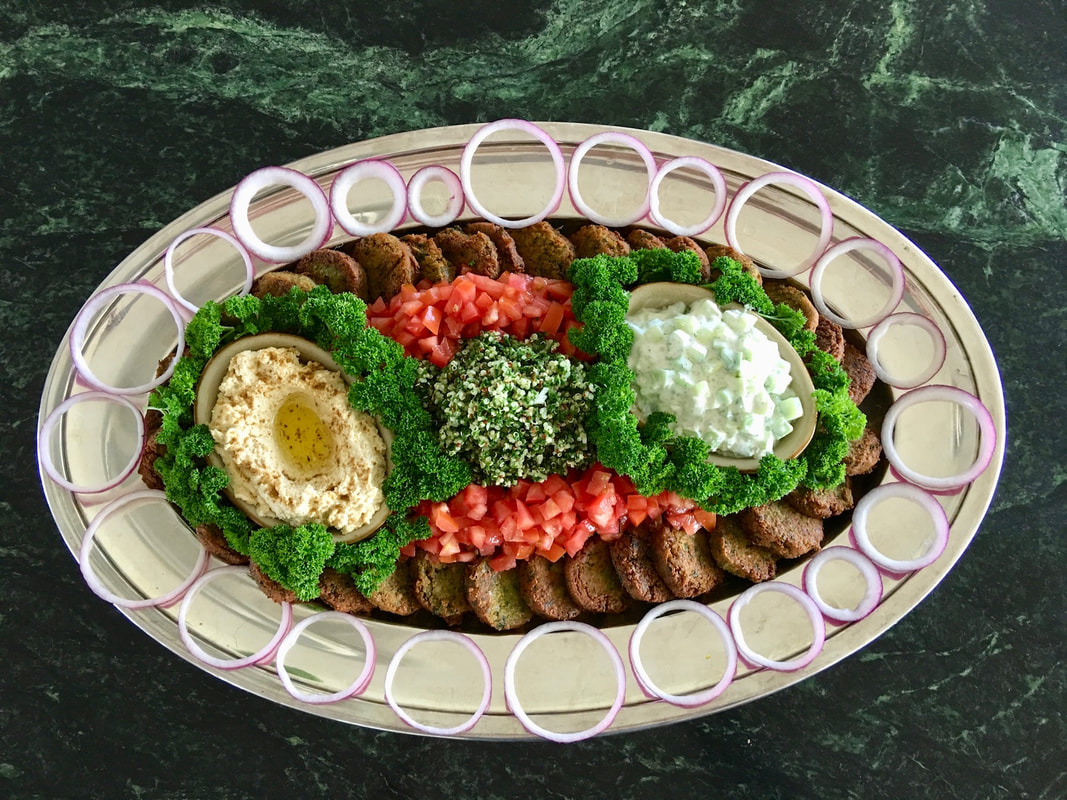
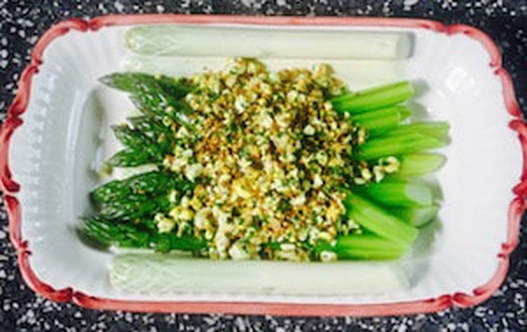
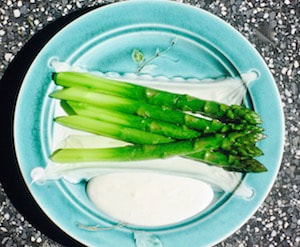
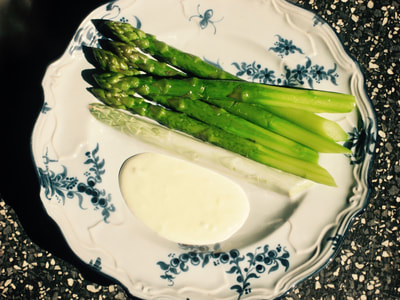
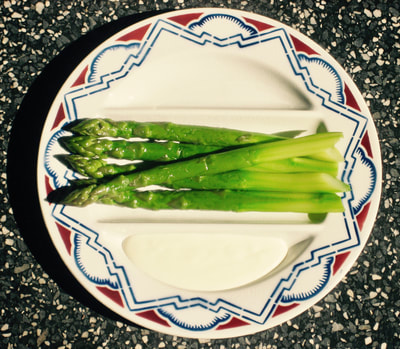
 RSS Feed
RSS Feed
